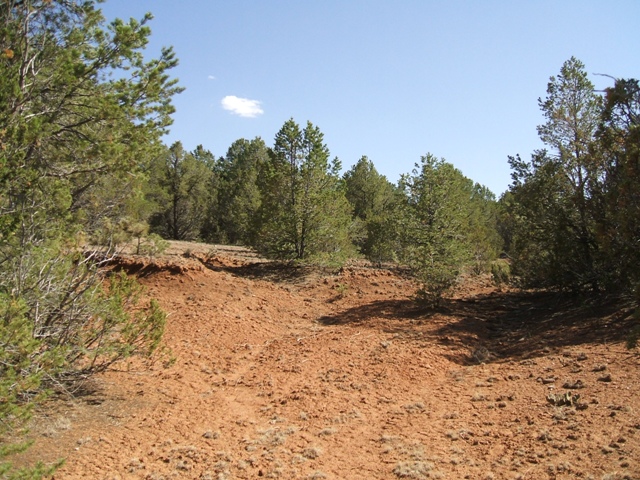FAO Restores 20,000 Hectares in Niger to Combat Land Degradation
To tackle these challenges at scale, FAO has introduced mechanised land restoration using the Delfino tractor-plough unit.

- Country:
- Niger
In Niger, nearly 100,000 hectares of land are lost each year to degradation, a crisis that threatens the food and nutrition sovereignty of millions. As fertile land shrinks, farmers and pastoralists face increasing hardship due to declining yields, loss of grazing grounds, and a cycle of recurrent food crises. But with support from the Food and Agriculture Organization of the United Nations (FAO) and partners like the European Union, Niger is beginning to reverse this trend.
Through the Action Against Desertification (AAD) programme and under the umbrella of the Great Green Wall (GGW) initiative, FAO is transforming vast areas of degraded land back into productive agricultural and pastoral landscapes. With over 20,000 hectares restored across 55 sites in key regions such as Tillabéri, Dosso, and Tahoua, this land regeneration is not only helping ecosystems recover—it is also restoring hope, food security, and livelihoods.
Degraded Lands Threaten Survival in Niger
Niger, located in the heart of the Sahel, has long been at the frontline of climate change, desertification, and soil erosion. The country’s dependence on agriculture and livestock for income makes it highly vulnerable to land degradation. With each passing year, large swathes of land become unsuitable for farming or grazing, pushing communities into cycles of poverty, forced migration, and food insecurity.
Restoration Through Innovation: The Delfino Plough
To tackle these challenges at scale, FAO has introduced mechanised land restoration using the Delfino tractor-plough unit. This equipment carves half-moon basins into the soil, significantly improving rainwater infiltration and retention—up to 1,000 litres per basin. This technique is vital in arid zones where rainfall is erratic and water must be used efficiently.
Unlike traditional manual digging, the Delfino plough can cover 15 hectares per day, enabling rapid and effective restoration of degraded landscapes. At the Awanchalla site in Bagaroua, Tahoua, the community marvelled at how the machine restored 100 hectares in record time, reclaiming land that had been abandoned for decades.
“Our dream has come true,” said Bizo Abarchi, a local resident and representative of the village chief. “The land was once unusable. Now, with the machine’s work, we can farm and graze again. The half-moons it makes are better than those we dig by hand.”
Livelihoods Reclaimed, Migration Reduced
For community members like Issa Matto, restored land has brought new opportunities:
“Now that the land is recovered, I no longer need to migrate. With FAO’s support, we can grow forage for sale—a lucrative venture in our pastoral area. We’ll receive plant seedlings, care for them, and eventually sell the produce. This gives me hope that my life will improve.”
The impact of land restoration extends beyond the soil. It provides income-generating activities, food security, and helps reduce the need for rural exodus—particularly among youth seeking opportunities in distant cities or across borders.
Community-Led Management for Sustainability
A key aspect of the programme’s success lies in community empowerment and governance. Residents of the restored areas are forming land management committees, where they are trained in:
-
Association management
-
Conflict resolution
-
Benefit-sharing frameworks
-
Marketing strategies
“We’re determined to give our best,” said Abdoul Moumouni Djimraou, a local leader. “We’ve already planned how we’ll manage the land, engage with authorities, and ensure everyone benefits fairly.”
By fostering ownership and collaboration, FAO ensures that restored land is sustainably maintained for future generations.
Partnership with the European Union: K4GGWA Project
The success of the land restoration initiative is made possible by the European Union-funded project “Knowledge for Action in Implementing the Great Green Wall” (K4GGWA). This partnership strengthens coordination between FAO, national agencies such as Niger’s National Agency of the Great Green Wall (NAGGW), and local communities.
Through K4GGWA, the project promotes:
-
Scaling up of mechanical land restoration techniques
-
Capacity building in land use and environmental management
-
Institutional support to integrate land restoration into policy frameworks
This work contributes directly to the larger Great Green Wall vision: a continental initiative aiming to restore 100 million hectares of degraded land across Africa’s Sahel region by 2030, while creating 10 million jobs and sequestering 250 million tonnes of carbon.
FAO’s Long-Term Commitment in Niger
FAO’s work in Niger reflects its broader commitment to building inclusive, sustainable, and resilient agrifood systems that improve:
-
Production
-
Nutrition
-
Environmental sustainability
-
Livelihoods
By leaving no one behind, the organisation is helping vulnerable communities build resilience against climate shocks, adapt to changing environmental conditions, and reclaim control over their land and food systems.
Hope Replanted in the Sahel
Niger’s fight against desertification is far from over, but the restoration of over 20,000 hectares of land is a strong signal of what is possible with innovation, partnership, and community dedication. With tools like the Delfino plough, support from FAO and the EU, and the leadership of local communities, degraded lands are turning green again—giving rise to new sources of income, reduced migration, and sustainable futures.
- READ MORE ON:
- Niger
- FAO
- land restoration
- desertification
- Great Green Wall
- European Union
- K4GGWA
- Delfino plough
- Action Against Desertification
- sustainable agriculture
- community development
- pastoral livelihoods
- agrifood systems
- climate resilience
- Sahel
- food security
- soil conservation
- environmental restoration
- rural empowerment
- agroecology
ALSO READ
Empowering the Sahel: How Economic Inclusion Programs Are Transforming Livelihoods
Delhi's Saheli Smart Card Revolutionizes Women's Commute
Delhi's Saheli Smart Card: A New Era of Free Travel for Women & Transgender Passengers
Uneven Harvests: Market Failures in Maize and Banana Sectors Undermine Food Security
IFC Backs Adal Azyk with $10M Investment to Advance Kyrgyz Food Security










